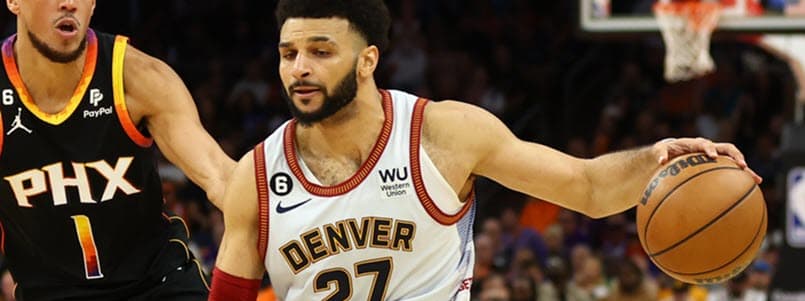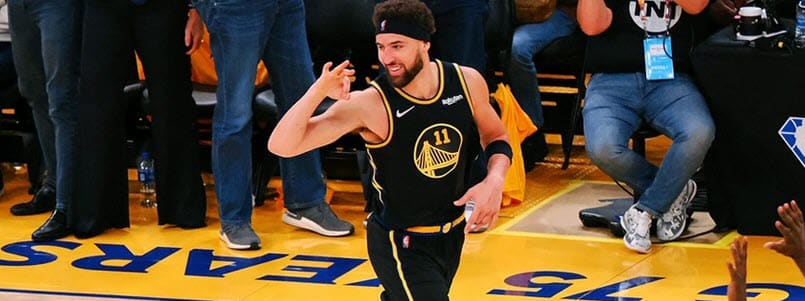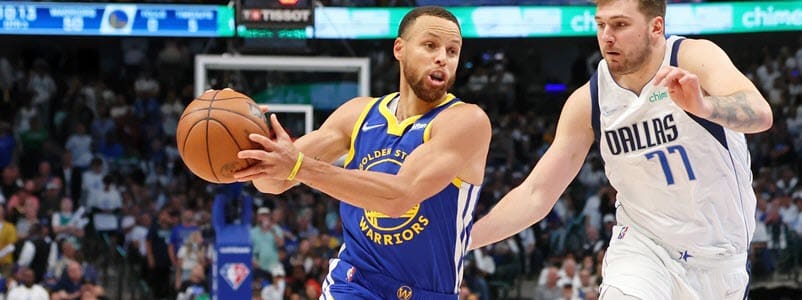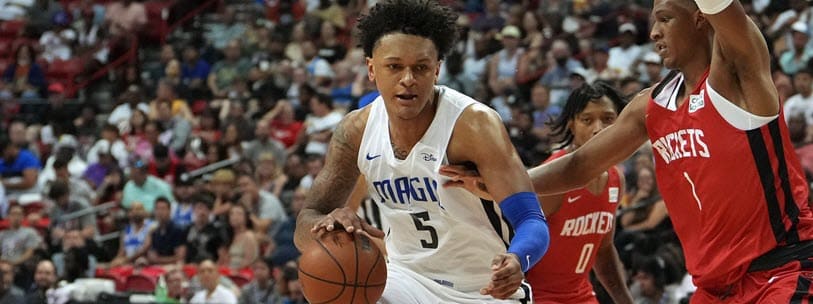Recent RotoWire Articles Featuring Ed Davis
See More
The 10-year vet joined his sixth team when he signed with the Jazz for the 2019-20 season, and the move led to the fewest minutes of his career and career lows in points (1.8), rebounds (3.8) and combined blocks/steals (0.7). A rebounding specialist, Davis crashed the glass for Brooklyn in 2018-19, as he set a career high in rebounds with 8.6. Davis was an important part of the Nets' rotation in logging 17.9 minutes off the bench, but his playing time was nearly cut in half with the Jazz to the tune of 10.8 minutes per tilt -- behind Rudy Gobert in the frontcourt. Davis was dealt to Minnesota in the offseason, and he's likely to see similar playing time for the Timberwolves behind perennial All Star Karl-Anthony Towns and second-year big Naz Reid. Davis can probably be avoided in all but the deepest of formats as a low-volume option with limited upside.
For the third time in his nine-year career, Davis appeared in exactly 81 games last season. He has proven himself to be one of the most durable backup big men, and he hauled in a career-best 8.6 rebounds in only 17.9 minutes per tilt during 2018-19. Furthermore, Davis thrived in his modest role offensively, shooting a career-high 61.6 percent from the field. He's likely to continue grabbing plenty of boards relative to his playing time while feasting on easy opportunities around the rim offensively. Still, Davis shouldn't be expected to log lots of minutes next to Rudy Gobert, like former Jazz big man Derrick Favors did over the last several years. As a result, barring an injury to Gobert, it's somewhat unlikely that Davis will be able to improve upon last year's production.
After struggling with health a year prior, Davis missed just four games in 2017-18, but continued to play a minor role off the bench. The 29-year-old impressively averaged 7.4 rebounds across just 18.9 minutes per game, while also chipping in with 5.3 points and a 58.2 percent clip from the field. However, he was a poor free-throw shooter at just 66.7 percent from the charity stripe and he also had no semblance of a three-point game, which certainly didn't help him become Fantasy relevant in most formats. Davis does have the chance to improve his numbers across the board after joining the Nets this offseason. Brooklyn let the likes of Quincy Acy, Dante Cunningham and Jahlil Okafor all walk during free agency. Davis and Kenneth Faried were really the only two guys brought in as replacements, with Davis currently being the more likely contributor. While Davis is set to come off the bench, he should be the first big man behind Rondae Hollis-Jefferson and Jarrett Allen at power forward and center, respectively. DeMarre Carroll also gets extended run at the four when the Nets are going small, so Davis will likely still spend most of his time as the backup center. Depending on just how big of a jump his workload takes, Davis could become a great source of boards, as well as a solid option for blocks and field goal percentage.
Davis' second year of a three-year, $20 million contract was a letdown, a big reason being because his season was cut short to just 46 games after undergoing left shoulder surgery in March. That said, Davis wasn't a huge contributor prior to the injury either, as he'd averaged just 4.3 points and 5.3 rebounds across 17.2 minutes as a reserve center. It was a slight down tick in playing time from the 20.8 minutes he saw a season prior, which translated to decreased production across the board. Looking forward, things aren't going to get any easier for Davis. The Trail Blazers brought in both Zach Collins and Caleb Swanigan in the first round of the 2017 NBA Draft, which adds even more bodies to the frontcourt and further complicates Davis' ability to get minutes. Davis was already behind Jusuf Nurkic at center and slew of options at power forward, and there's a chance the Trail Blazers turn to the younger Collins to operate as Nurkic's backup if they like what they see from him in training camp. That should mean another small role off the bench for Davis and it wouldn't be surprising if he ultimately lost a few minutes in the rotation heading into the final year of his contract.
After accepting the veteran's minimum to join the Lakers last summer, Davis took full advantage of an unexpected injury, Julius Randle's season-ending fractured tibia on Opening Night, and logged 20-to-30 minutes in 53 of his 79 games. Along the way, Davis picked up his most run (23 minutes per contest) since he was dealt from Toronto to Memphis in the midst of the 2012-13 season. A 23-game stretch in the starting lineup from Dec. 7 through Jan. 21 deviated little from his season-long marks, which equated to averages of 8.3 points (on a team-best 60 percent shooting), 7.6 rebounds, a team-high 1.2 blocks, and 1.2 assists. Cashing in on the most fruitful campaign of his five-year career, he inked a three-year, $20 million contract in Portland, where another bench role awaits behind holdover Meyers Leonard and fellow offseason addition Mason Plumlee. Ringing in at 6-foot-10, 225 pounds, Davis can man both power forward and center, but that versatility may not be enough to fend off 20-year-old Noah Vonleh at the four, thereby containing his value to deeper leagues.
Ed Davis was planted on the bench in Memphis last season, stuck behind Zach Randolph, Marc Gasol, Kosta Koufos, and at times, Jon Leuer in the rotation. He averaged 5.7 points, 4.1 rebounds, 0.4 assists, 0.3 steals, and 0.7 blocks in 15 minutes per game through 63 games, all career lows. Davis shot 53 percent from the field on 4.6 attempts and 53 percent from the line on 1.4 attempts. He signed as a free agent in Los Angeles for the veteran's minimum and will be looking to reignite his career. The frontcourt isn't as stacked as it was in Memphis and new coach Byron Scott has already stated he expects Davis to get a good amount of minutes at the center position, likely backing up Jordan Hill. When Davis was last getting near-starters minutes in Toronto in 2012-13 before his trade to Memphis, he averaged 9.7 points, 6.7 rebounds, 1.2 assists, 0.6 steals, and 0.8 blocks in 24 minutes per game. His fantasy strengths lie in his ability to get rebounds, blocks, and shoot a very solid field goal percentage, and if the minutes return to his Raptors' days, he could be a sneaky, deeper league option.
Davis appeared to be having a semi-breakout season with the Raptors in 2012-13 before he was shipped to Memphis in the Rudy Gay trade. With the Grizzlies, Davis averaged nine minutes less per game and never fit in with head coach Lionel Hollins, who wasn't happy with the trade. It may have been the coach's grudge or Davis' inability to pick up a new system that resulted in him not having an impact in Memphis. Aside of ridding themselves of Gay's salary, the Grizzlies view Davis as a key asset in the deal. He's still on the thin side, so it remains to be seen if he can become a power forward who doesn't get pushed around in the low post. His minutes will be capped with Zach Randolph in front of him, but the Grizz are hoping to see a player that can eventually replace Z-Bo.
Davis’ second season in the NBA was not much different than his rookie season. He averaged 6.3 points, 6.6 rebounds and 1.0 blocks in 23.2 minutes per game, all but his blocks were slightly down from his 2010-11 numbers. Coach Dwane Casey doesn’t like playing Davis at center, believing he’s strictly a power forward. It’s also believed that rookie Jonas Valanciunas will win the starting center job, or at least demand significant minutes there. Davis will be fighting an uphill battle to improve on his numbers this season. Unless Casey is willing to slot Andrea Bargnani into the small forward spot, Davis will likely played limited minutes and only be of use in deeper leagues when the Raptors’ roster is healthy. If he ever gets over 30 minutes of run per game, Davis should be a double-threat and have some value in the blocks category. While we like his long-term potential, we’re also worried that Casey isn’t ready to give him starters minutes.
Davis had his NBA debut delayed after suffering a torn meniscus in his right knee prior to training camp last season. The Raptors wisely decided to bring the rookie along slowly, but by the end of the season he was a regular in the starting lineup. After showing steady progression, Davis started to shine during the last few weeks of the season, averaging 13.1 points, 9.0 rebounds and 1.0 blocks in his final 11 games. Coming out of the University of North Carolina, Davis was already considered a solid rebounder and defender, but his offensive game was considered raw. While he’s still in need of fine-tuning, Davis has the potential to develop into a solid low-post offensive option down the line. The Raptors also have Amir Johnson at power forward, but given Davis’ strong finish and first-round pedigree, we expect him to eventually earn the brunt of minutes at the four.
Davis tore a meniscus in his right knee in a pickup game and was forced to undergo minor arthroscopic knee surgery that will keep him out until sometime in November. He’s a great rebounder and shot blocker who could carve out a small defensive role with the team later in the season, but he’ll have to get healthy before the team can count on him for anything.













